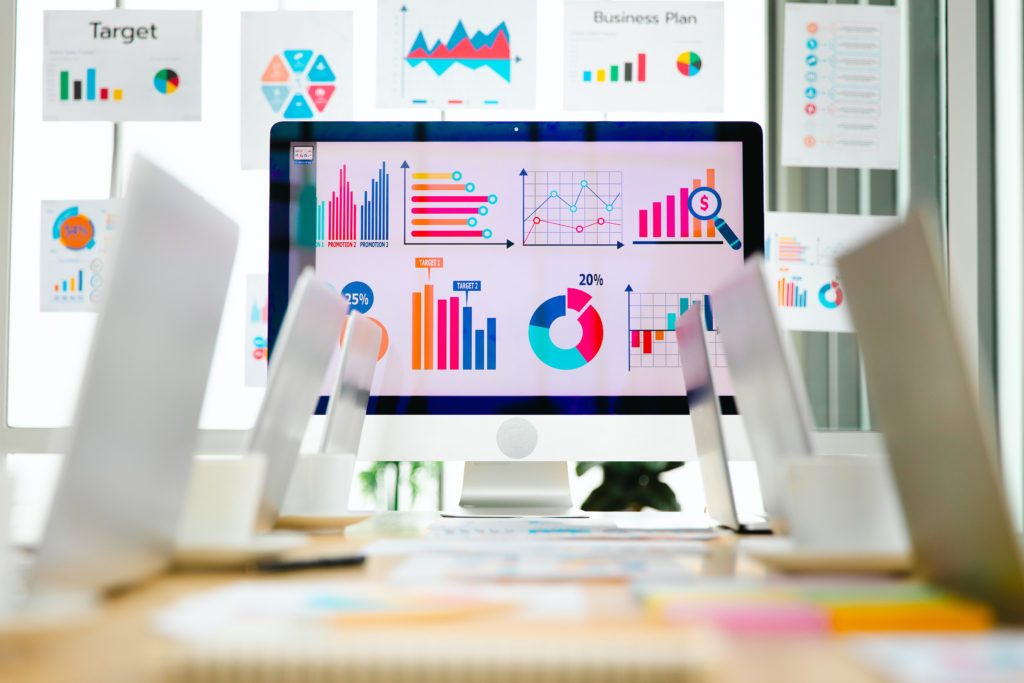
Image Source: Unsplash
Introduction to Data Analytics
In today’s fast-paced and interconnected world, data is being generated at an unprecedented rate. From social media posts to online shopping transactions, every click and interaction leaves behind a digital footprint. This vast amount of data holds immense potential, and the key to unlocking its power lies in data analytics.
Data analytics is the process of examining raw data to draw meaningful insights and make informed decisions. It involves collecting, organizing, and analyzing data to uncover patterns, trends, and correlations. By harnessing the power of data analytics, organizations can gain a competitive edge, solve complex problems, and transform society’s future.
The Significance of Data Analytics in Society
Data analytics plays a vital role in various aspects of society, from business to healthcare and beyond. In the business world, data analytics enables companies to optimize their operations, improve customer experiences, and drive innovation. By analyzing customer preferences and behavior, businesses can tailor their products and services to meet evolving demands. This not only enhances customer satisfaction but also increases revenue and market share.
In the healthcare industry, data analytics has the potential to revolutionize patient care. By analyzing medical records, genetic data, and clinical trials, healthcare professionals can identify patterns and trends to improve diagnoses, treatment plans, and preventive measures. Data analytics also holds promise in predicting and managing disease outbreaks, thereby saving lives and reducing healthcare costs.
Data Analytics in Various Industries
Data analytics has far-reaching implications across industries. In the finance sector, it helps detect fraudulent activities, manage risks, and optimize investment portfolios. In manufacturing, data analytics can enhance supply chain management, improve quality control, and enable predictive maintenance. In the transportation industry, data analytics can optimize routes, reduce fuel consumption, and improve logistics.
The retail industry benefits from data analytics by analyzing customer buying behavior, optimizing inventory management, and personalizing marketing campaigns. Government agencies can leverage data analytics to enhance public safety, optimize resource allocation, and improve policy-making. From agriculture to education, data analytics has the potential to transform every sector and shape the future of society.
The Role of Data Analytics in Decision-Making
In today’s data-driven world, making informed decisions is crucial for success. Data analytics provides decision-makers with valuable insights that help them navigate complex challenges and seize opportunities. By analyzing historical data and predicting future trends, organizations can make accurate forecasts, allocate resources effectively, and minimize risks.
Data analytics also enables evidence-based decision-making. Rather than relying on gut instincts or assumptions, decision-makers can rely on data-driven insights to validate their strategies and make more informed choices. This not only improves the quality of decision-making but also increases efficiency and productivity.
Data Analytics Tools and Techniques
To harness the power of data analytics, organizations rely on a range of tools and techniques. These include statistical analysis, machine learning algorithms, data visualization, and predictive modeling. Statistical analysis helps uncover patterns and relationships in data, while machine learning algorithms enable computers to learn from data and make predictions or classifications.
Data visualization techniques, such as charts, graphs, and dashboards, provide a visual representation of data, making it easier for decision-makers to understand complex information. Predictive modeling allows organizations to forecast future outcomes based on historical data, enabling them to make proactive decisions and stay ahead of the competition.
Challenges in Data Analytics
While data analytics holds immense potential, it also comes with its fair share of challenges. One of the key challenges is the sheer volume of data being generated, often referred to as “big data.” Managing, processing, and analyzing this vast amount of data requires advanced infrastructure, computational power, and expertise.
Data quality is another challenge in data analytics. Inaccurate or incomplete data can lead to flawed insights and misguided decisions. Ensuring data accuracy and reliability requires robust data governance practices, data cleansing techniques, and data quality control measures.
Privacy and security concerns also pose challenges in data analytics. With the increasing amount of personal and sensitive data being collected, organizations must prioritize data protection and comply with relevant regulations. Ethical considerations, such as ensuring data anonymity and obtaining informed consent, are vital to maintaining public trust and confidence in data analytics.
Ethical Considerations in Data Analytics
The power of data analytics comes with ethical responsibilities. Organizations must ensure that data is collected and used in a responsible and transparent manner. Respecting individual privacy rights and protecting personal data is of utmost importance.
Ethical considerations also extend to the use of data analytics in decision-making. Bias in data collection or analysis can lead to unfair or discriminatory outcomes. It is essential to address bias and promote fairness, diversity, and inclusivity in data analytics practices.
Transparency and accountability are key ethical principles in data analytics. Organizations should communicate their data practices clearly to individuals and be accountable for the decisions made based on data analytics insights. By upholding ethical standards, data analytics can be a force for good and drive positive societal change.
Data Analytics and the Future of Society
The future of society is intricately linked to the power of data analytics. As technology advances and data continues to proliferate, the potential for data analytics to transform society is immense. From personalized healthcare to smart cities, data analytics has the capacity to revolutionize every aspect of our lives.
With the advent of artificial intelligence and machine learning, data analytics will become even more powerful. Automated data processing, real-time analytics, and intelligent decision-making systems will shape the future of society, making processes more efficient, improving quality of life, and enabling sustainable development.
Data Analytics Career Opportunities
As the demand for data analytics grows, so do the career opportunities in this field. Data analysts, data scientists, and data engineers are in high demand across industries. These professionals leverage their skills in data collection, analysis, and interpretation to drive business growth and innovation.
Career paths in data analytics vary, with opportunities in industries such as finance, healthcare, e-commerce, and technology. Strong analytical and problem-solving skills, along with a solid understanding of statistics, programming languages, and data visualization tools, are essential for a successful career in data analytics.
Conclusion
Data analytics has the power to transform society’s future by providing valuable insights, enabling informed decision-making, and driving innovation. From businesses to healthcare, every industry stands to benefit from harnessing the power of data analytics. However, it is crucial to address challenges such as data quality, privacy concerns, and ethical considerations to ensure responsible and effective use of data analytics.
As society becomes increasingly data-driven, the demand for skilled professionals in data analytics will continue to grow. By pursuing a career in data analytics, individuals can contribute to shaping the future and driving positive change. Embracing the power of data analytics is essential for organizations and individuals alike, as we strive towards a future where data-driven insights unlock new possibilities and transform society for the better.

